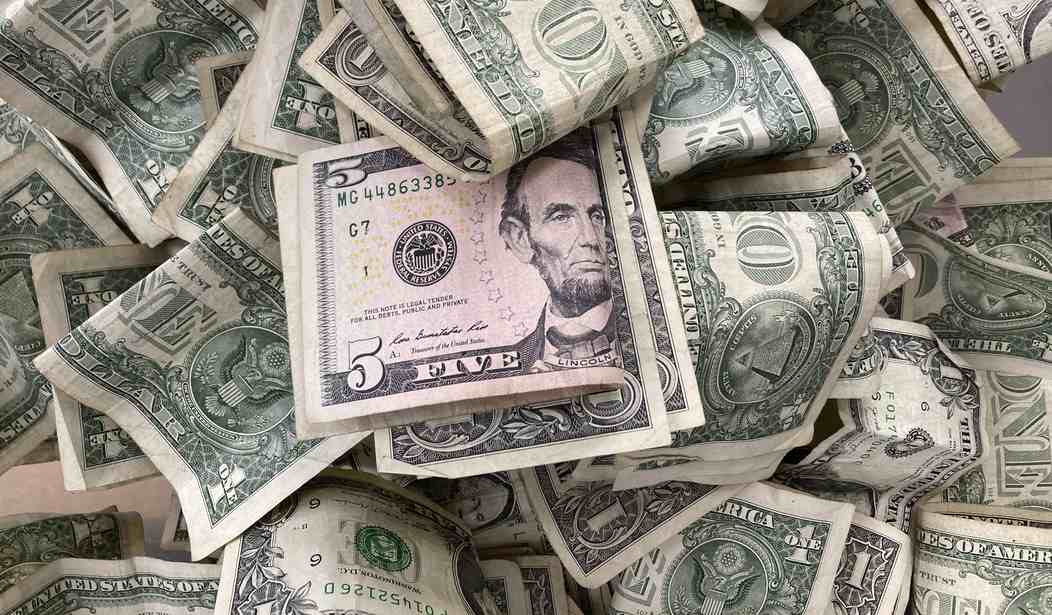There are three kinds of people in any economy. Proportions vary. These three types are Takers, Fakers and Makers. Only one of these groups contributes anything to society. Only one of these groups produces any value. Only one of these groups puts in the effort, which the other two groups depend on to provide them with their basic needs of life.
There are only three types of economic transaction. If a transaction involves force, it is theft. If a transaction involves deceit, it is fraud. If it is a free, voluntary exchange of value in which both parties realize a perceived gain in value, then it is trade. Only one of these is an acceptable way to handle any economic transaction, and only one of the three groups I’ve mentioned regularly does things this way.
So, let’s examine these three groups.
Takers
Ayn Rand called this group “looters,” and that is appropriate. These are the people who drain from the system, through taxation, through fines, through fees, without providing goods or services in return. Oh, there are legitimate purposes for government, supported by taxation, mostly in the form of distributed interests such as basic infrastructure, national defense and the courts. But much of our Brobdingnagian government today far, far exceeds that minimal – I would say optimal – level, and thus richly deserves the term “taker.”
It’s common to hear politicians talk about taxes as being a “contribution,” or “the price we pay for living in a society,” but it’s important to note that taxation is carried out with the threat of force; try not paying your taxes and see how long it takes the government to send men with guns out, looking for you.
But takers are also the people who accept government largesse in return for producing nothing but political talking points, such as the “green energy” companies that accept millions in government low-interest loans and grants, and produce very little in return. These people accept money taken from the taxpayers by the threat of force and provide nothing in return—except talking points for politicians.
Examples of takers include Solyndra, China’s green energy industry, Chuck Schumer, Nancy Pelosi, and every politician, ever. These are the people who conduct economic transactions by force.
Fakers
For an example of a faker, one need look no further than Hunter Biden. From his lucrative time on the board of Burisma to his current sham of a performance as an artist, Hunter has managed to bank millions while never once doing an honest day’s work. The entire Biden family has grown enormously rich during old Joe’s tenure in government, mostly through such influence-peddling as Hunter is known to have done. They continue to do so to this day, old Joe’s ongoing and obvious mental decline notwithstanding.
Not all fakers are the families of the politically powerful. Higher education is full of them. It shouldn’t be, but it is. The universities that offer fraudulent degrees, which do nothing to prepare students for productive careers, are fakers; so are the massive numbers of Diversity, Inclusion and Equity consultants who advise academia and the corporate world alike. Political activist groups prove themselves to be fakers with annoying regularity, as has (among others) the Black Lives Matter organization.
Other examples of fakers include Hillary Clinton, all lobbyists, and academicians providing instruction in bogus ‘X-Studies’ degrees. These are the people who conduct economic transactions by fraud.
Makers
Finally, the makers — the people who are worth something!
These are the people that are the basis of any economy. They are the ones about whom sci-fi writer Robert Heinlein said:
Throughout history, poverty is the normal condition of man. Advances which permit this norm to be exceeded — here and there, now and then — are the work of an extremely small minority, frequently despised, often condemned, and almost always opposed by all right-thinking people. Whenever this tiny minority is kept from creating, or (as sometimes happens) is driven out of a society, the people then slip back into abject poverty.
This is known as bad luck.
Without makers, there is nothing for the takers to take. Without makers, there is nothing for the fakers to seek. Without makers, there can be no modern technological society. It is the highest irony to see the political Left decry the makers, to denounce capitalism, to denounce industry and corporations, to denounce traditional values, even as their lives, their activism, and their ability to organize and denounce are based on the very people — the very institutions — they decry. Without the makers these people would be helpless, and it would not be amiss for the makers to occasionally remind the others that “you need us. We don’t need you.”
Despite it all, makers usually go right on making. In the face of protest, in the face of political pressure, in the face of social scorn from the activist left, makers go on making, because that’s what they do. There have, of course, been examples throughout history in which things got so difficult for the makers that they stopped producing. Look at Venezuela, Cuba, or the Soviet Union for examples of how well that works out.
Examples of makers include Samuel Colt, Henry Ford, Thomas Edison, and any innovator who produced something new or found a new, more efficient way to produce a product already in use. These are the people who conduct free trade; the free and open, voluntary exchange of value, with a recognized gain on all sides.
In other words: Liberty.
Who Can It Be Now?
Our political system today seems to seek to punish makers more with every new law and edict. Within the last few months we have learned of 87,000 new IRS agents, more men with guns to confiscate more of our production. But there are some people coming up on the political scene who seem to understand the relative value produced by these three groups of people, and who seem to be taking the side of makers; we’ll see how that works out, if and when they are seated at the levers of power. The takers and fakers have been ascendant for some time now, and they won’t take any effort to reduce their influence and their unearned increment lightly.
The next few years could prove to be very, very interesting indeed.














